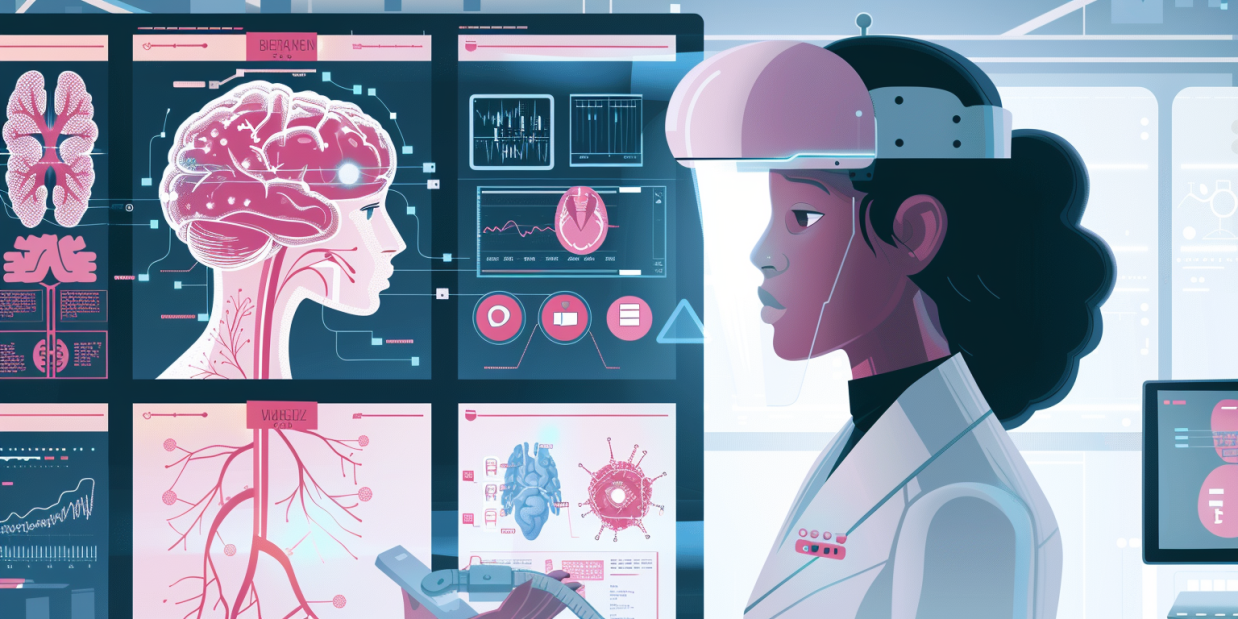AI’s Impact on Healthcare Jobs: Enhancing Care or Replacing Roles?
Explore how AI is transforming healthcare, impacting jobs, diagnostics, treatment, patient care, and creating new opportunities. Discover the importance of reskilling and ethical considerations for a balanced integration of AI in healthcare.
Get referred to your dream company
Sections
The healthcare sector is witnessing a paradigm shift with the integration of Artificial Intelligence (AI). From diagnostics to patient care, AI technologies are reshaping healthcare professions, raising important questions about their impact on jobs. Will AI enhance healthcare services, or does it pose a threat to existing roles? This blog post delves into the transformative role of AI in healthcare, exploring whether it acts as a catalyst for improved care or a challenger to traditional jobs.
Transforming Diagnostics and Treatment
AI's ability to analyze large datasets rapidly and with high precision is revolutionizing diagnostic processes. Machine learning algorithms can interpret medical images, such as X-rays and MRIs, often with greater accuracy or in complement to human evaluations. This capability not only speeds up the diagnostic process but also enhances its accuracy, leading to early detection of conditions like cancer, which significantly improves patient outcomes.Moreover, AI systems are increasingly used in developing personalized treatment plans. By analyzing patient data and comparing it against vast medical databases, AI can recommend customized treatment protocols tailored to the individual's genetic makeup, lifestyle, and response to past treatments. This precision medicine approach is particularly transformative in fields like oncology, where AI-driven insights can significantly affect treatment efficacy.
Augmenting Patient Care
In patient care, AI and robotics are being deployed to assist healthcare professionals in routine tasks, allowing them to focus more on direct patient care activities that require human touch and empathy. AI-powered chatbots are providing 24/7 support to patients, answering queries, and offering health advice, thereby enhancing patient engagement and self-management of conditions.Robot-assisted surgery is another area where AI is making significant inroads. These systems enhance a surgeon's capabilities, offering precision, reduced tremor, and the ability to perform minimally invasive procedures with more accuracy, leading to quicker patient recovery times.
Impact on Healthcare Jobs
Enhancing Roles, Not Replacing
The evidence so far suggests that AI is more likely to augment healthcare jobs than replace them. By automating administrative tasks and providing advanced diagnostic and treatment support, AI allows healthcare professionals to focus on the intricacies of patient care that require human expertise, compassion, and critical thinking. This shift can lead to more fulfilling roles, with professionals spending more time on patient interaction and complex decision-making.
Creating New Opportunities
AI is also creating new job categories within healthcare, including AI specialists, data analysts, and technologically skilled nursing staff. These roles focus on the development, implementation, and management of AI technologies in healthcare settings. As such, the demand for professionals with combined expertise in healthcare and technology is growing, opening new career paths that were previously nonexistent.
The Need for Reskilling and Education
To harness the benefits of AI in healthcare, there's a pressing need for reskilling and continuous education among healthcare professionals. Understanding the basics of AI, data analysis, and digital literacy will become essential skills, alongside traditional healthcare expertise. Educational institutions and healthcare organizations must collaborate to provide training programs that equip the workforce with the necessary skills to work alongside AI technologies effectively.
Navigating Ethical and Privacy Concerns
The integration of AI in healthcare raises significant ethical and privacy concerns, particularly regarding data security and patient consent. Healthcare professionals will need to navigate these challenges carefully, ensuring that AI technologies are used responsibly and ethically, with a clear focus on enhancing patient care while safeguarding personal data.
Conclusion
AI's impact on healthcare jobs is a complex yet fundamentally positive narrative. Rather than replacing roles, AI is enhancing the quality of care, optimizing healthcare operations, and creating new opportunities for professionals. By augmenting human capabilities, AI allows healthcare workers to focus on what they do best — providing compassionate, empathetic, and nuanced care to patients.As we look to the future, the successful integration of AI in healthcare will depend on a balanced approach that values both human and artificial intelligence. Education, continuous learning, and ethical considerations will be key in navigating this transition. In doing so, we can ensure that AI becomes a powerful ally in advancing healthcare, improving patient outcomes, and enriching the roles of healthcare professionals.
Your career is worth investing in.
Get unlimited referrals with Premium.
Community
© 2025 Crucible Fund LLC. All rights reserved.
